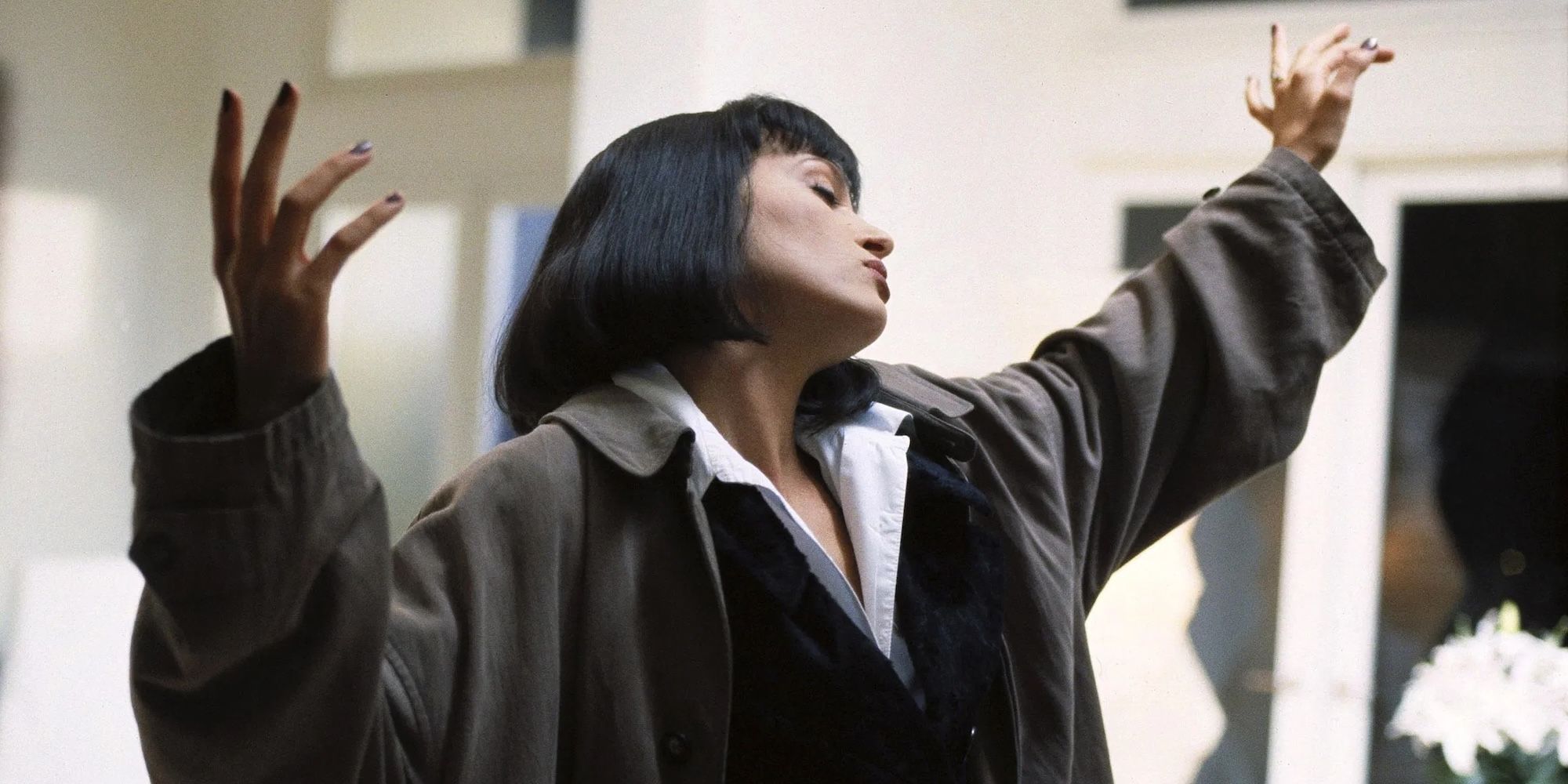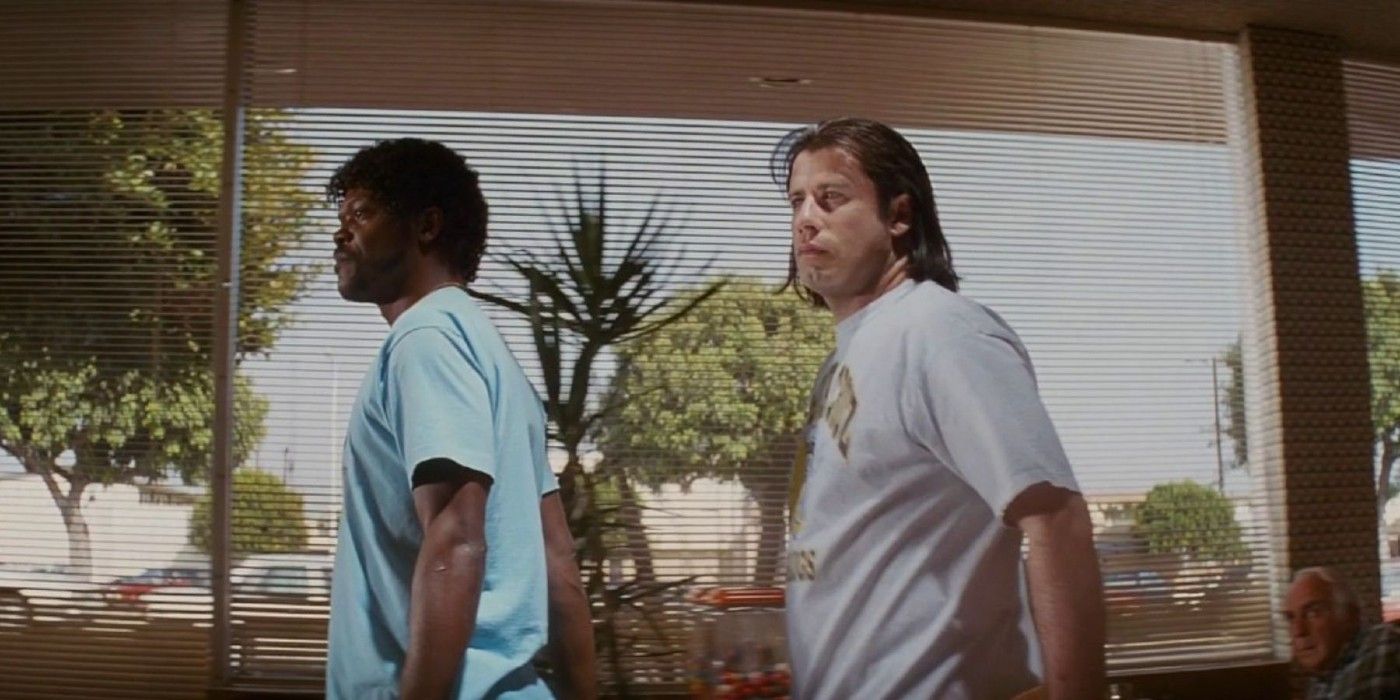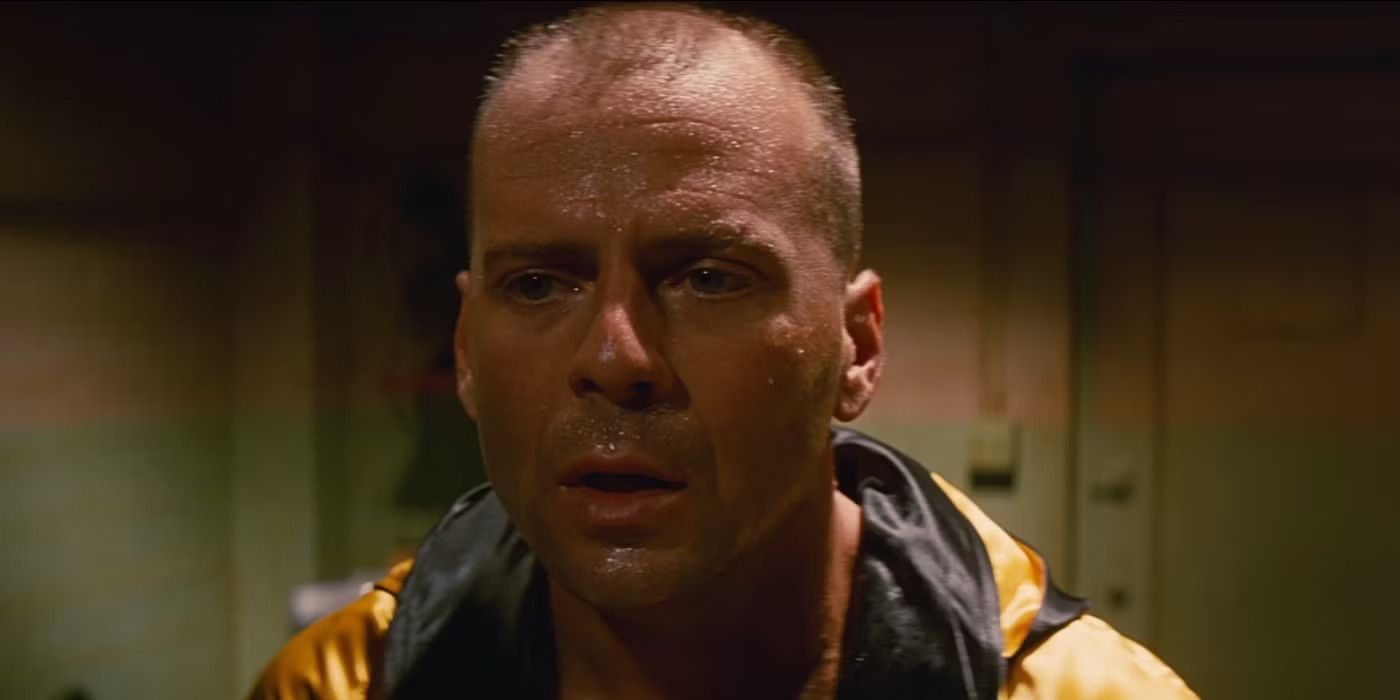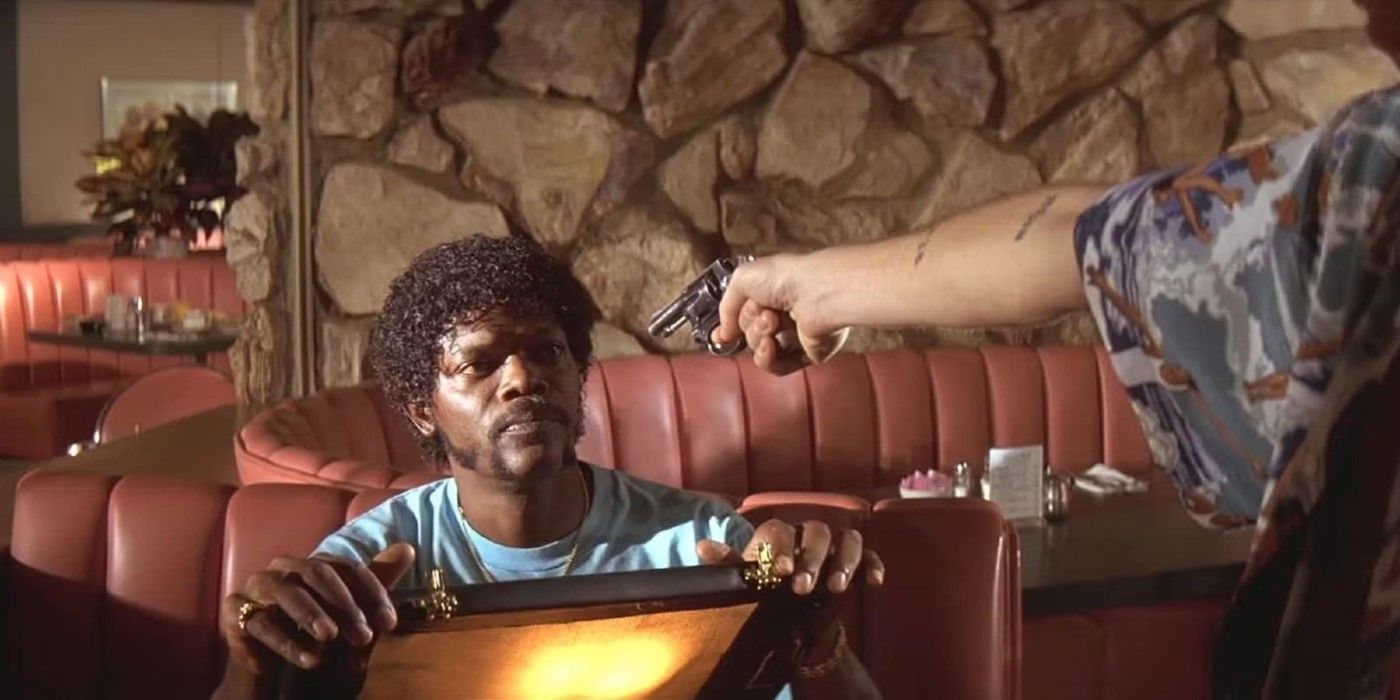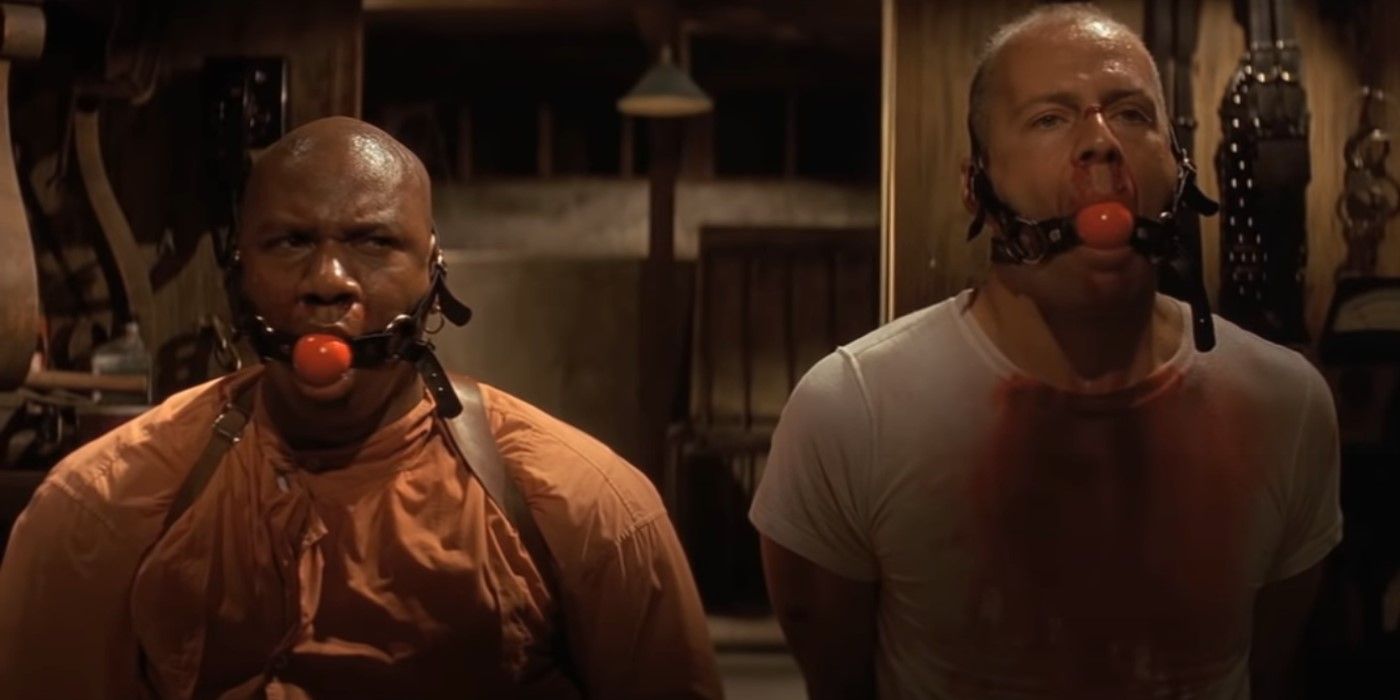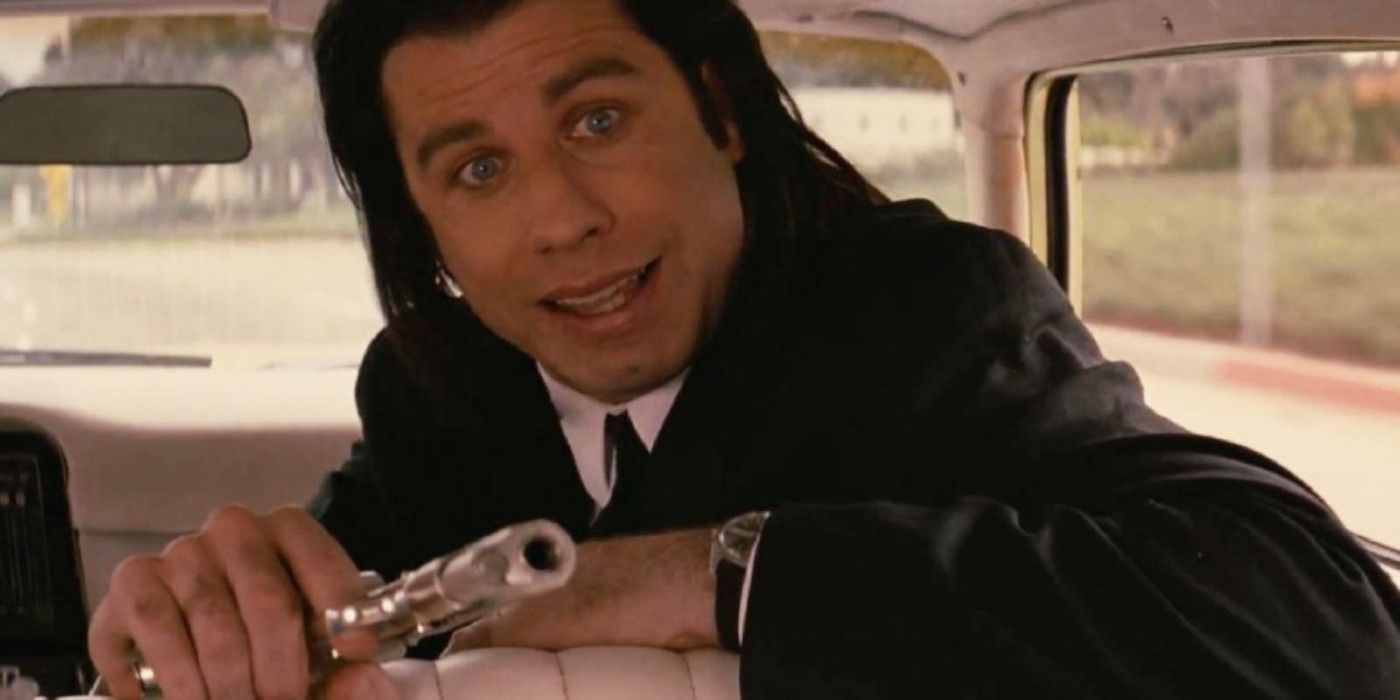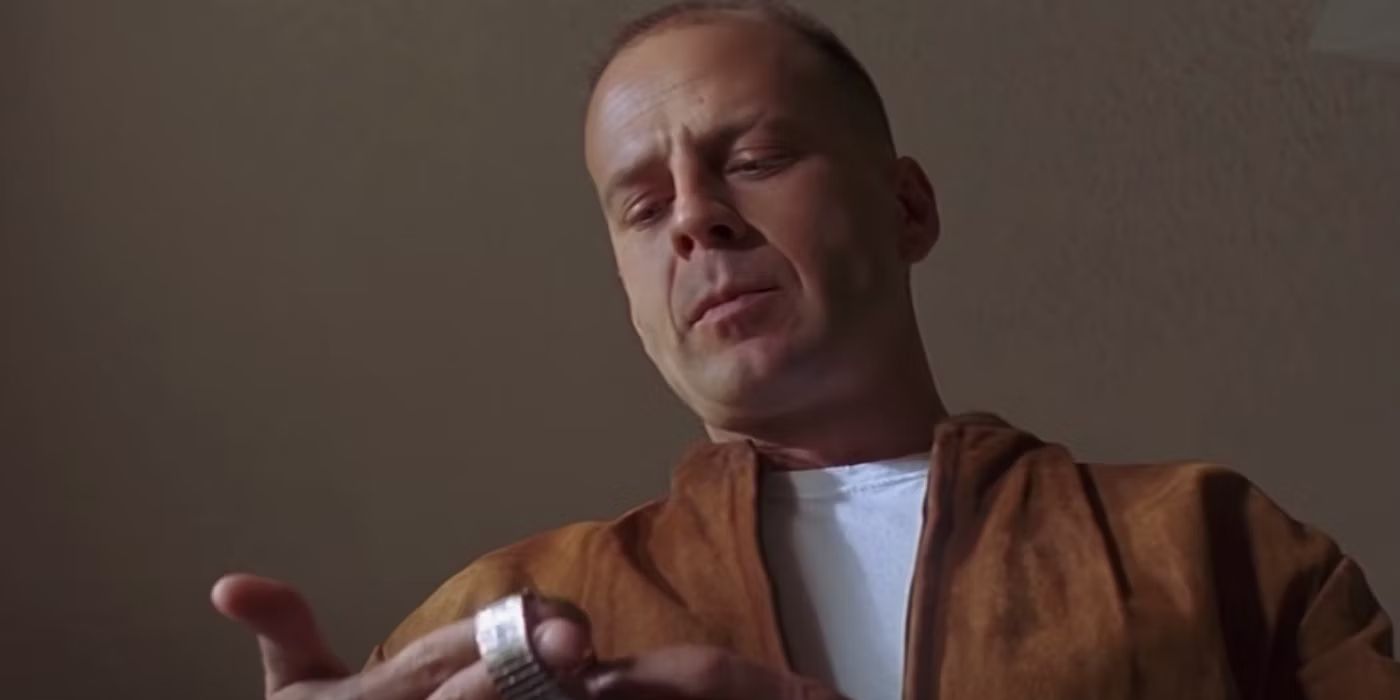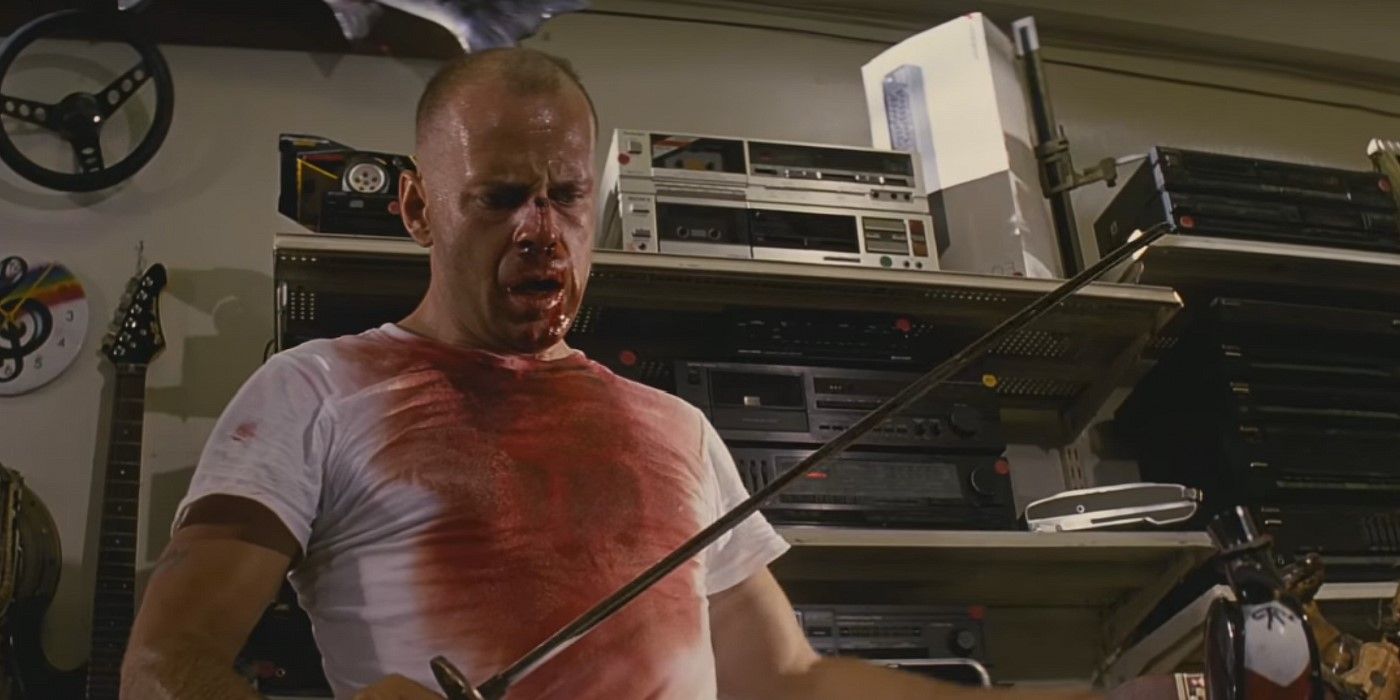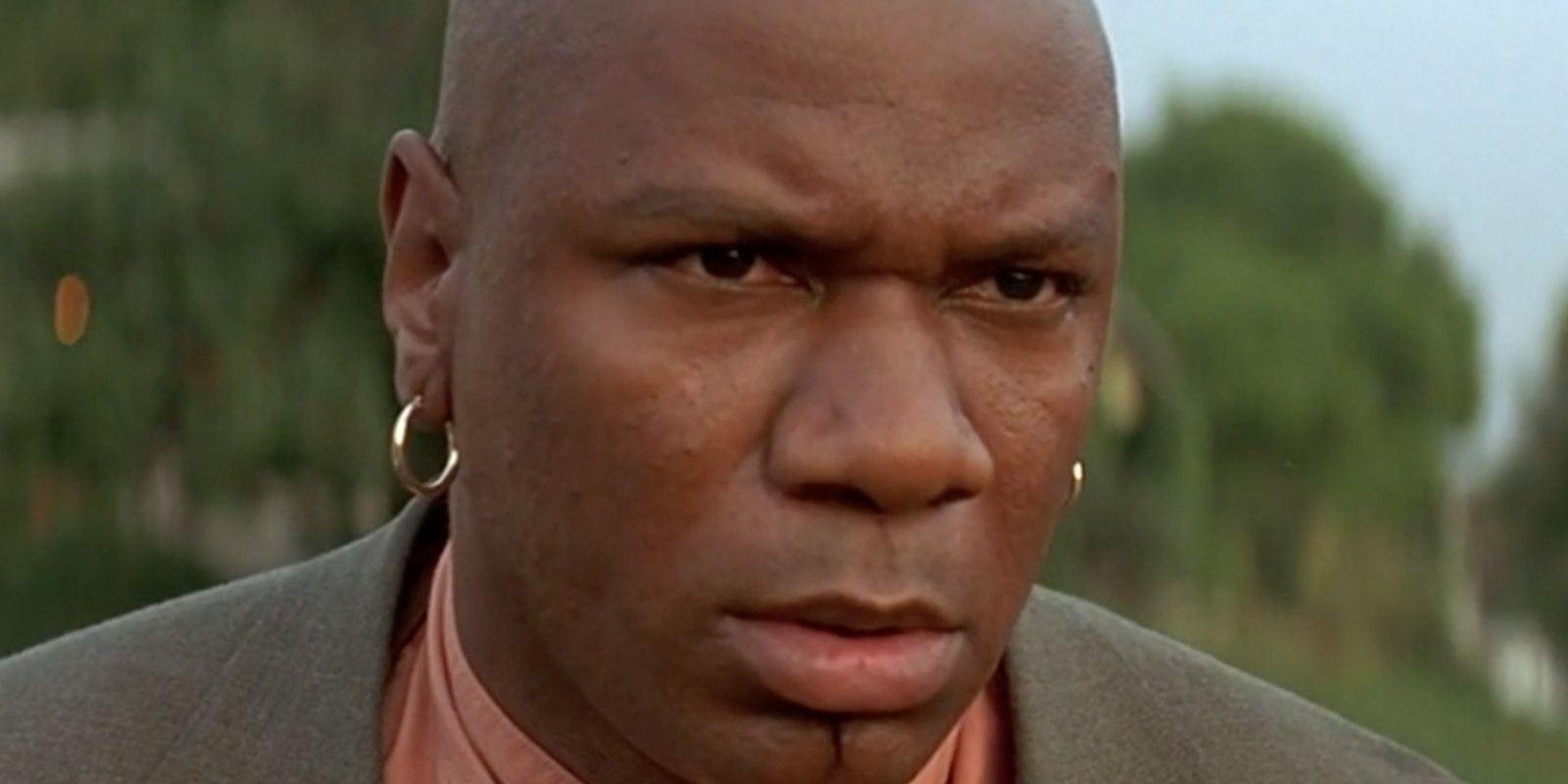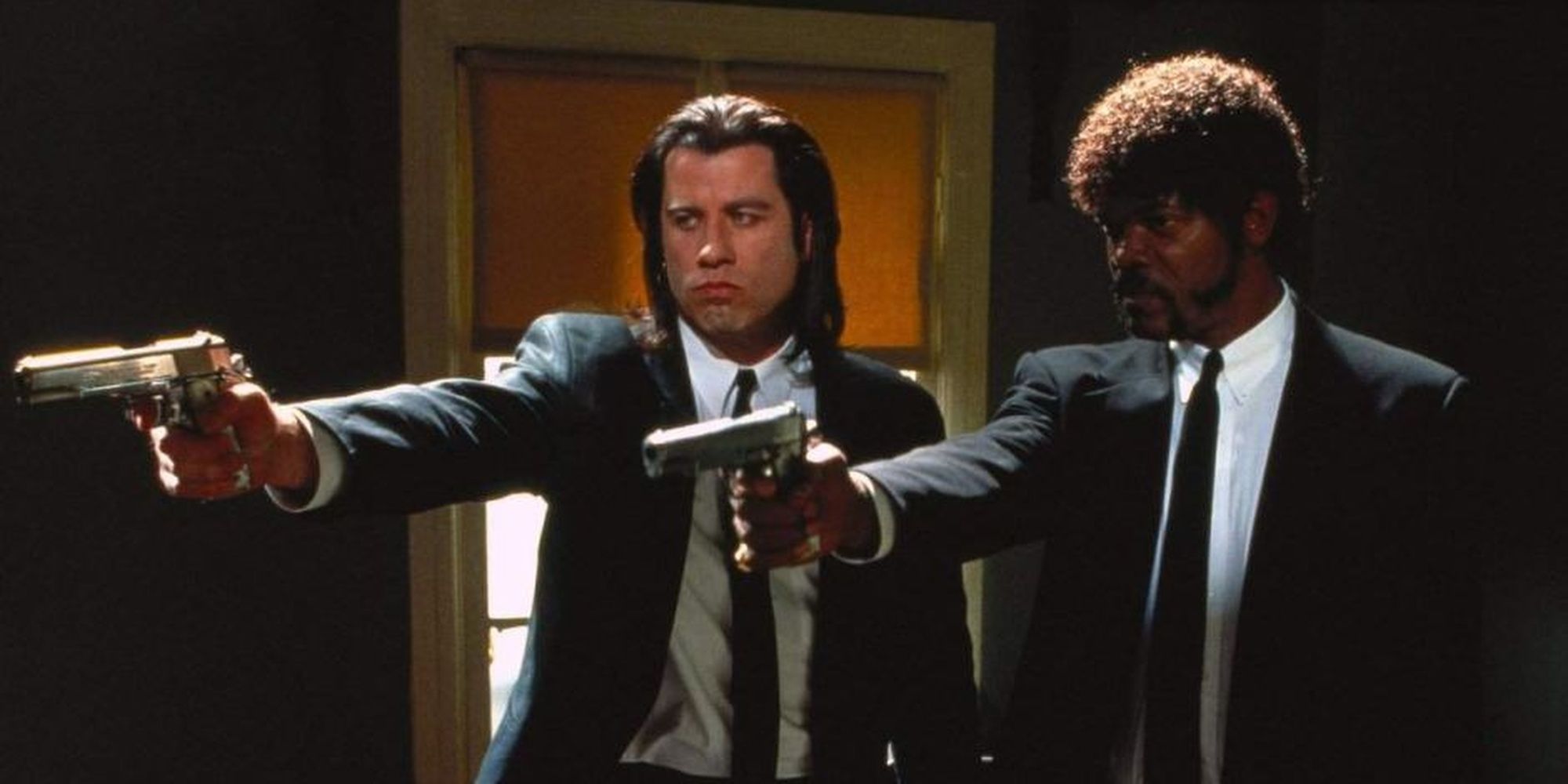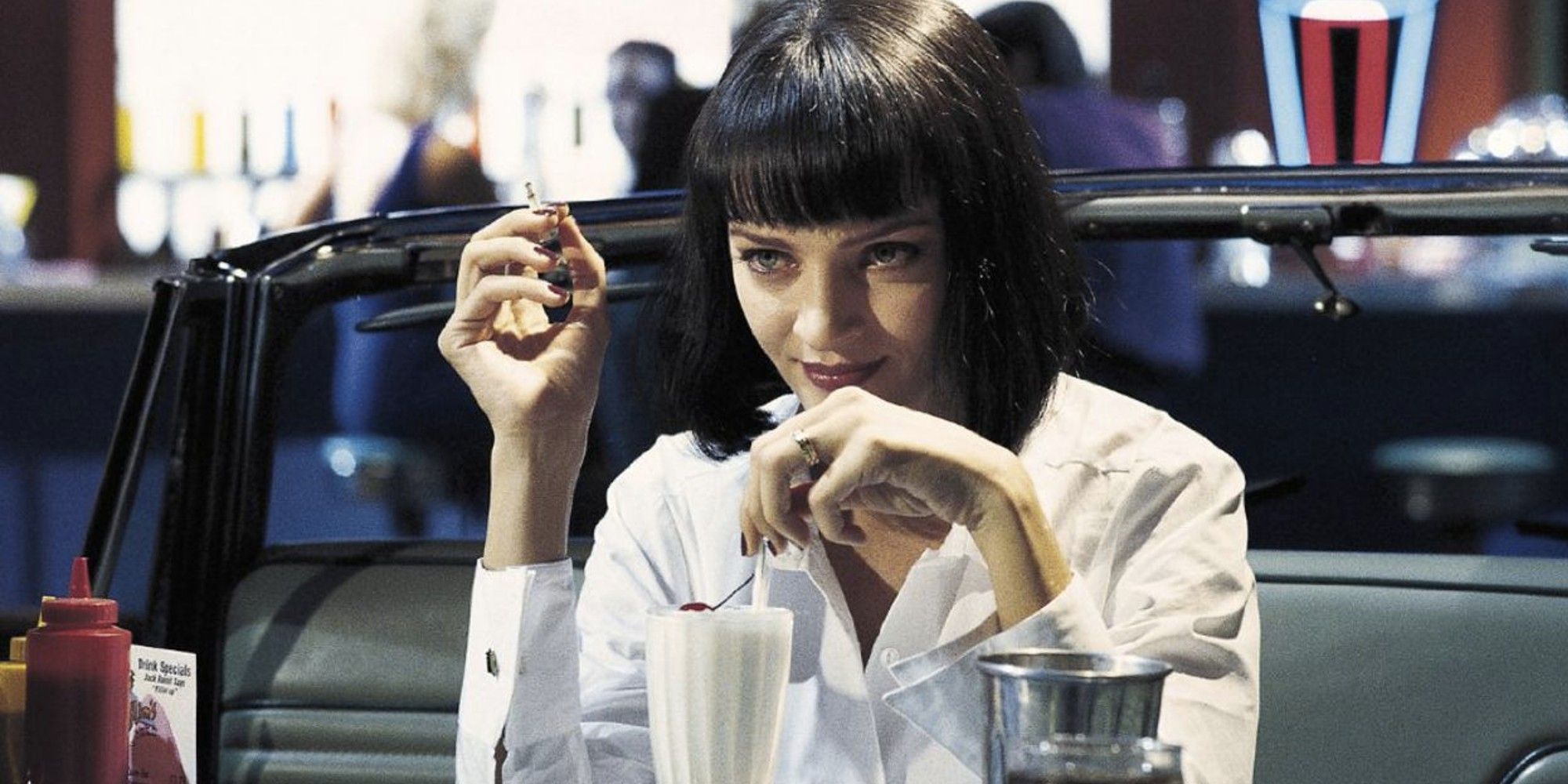Pulp Fiction is a wild ride of a movie with a complicated story, partly because of its irreverent violence, its singular performances, its humor, and—of course—all of those plot twists. The first viewing is a real rollercoaster, as the viewer tries to keep track of a plot told from multiple points of view and out of chronological order. Director and co-writer Quentin Tarantino makes this pretty easy to follow, but the story gives viewers the impression that anything can happen at any time. That’s what Tarantino wants, and the film magically still feels that way upon repeated viewings.
This is not just because of how many plot twists there are; it’s also the quality of them. They can be funny, thrilling, integral to someone’s character arc, ominous, or any combination of those elements. A good plot twist can’t just happen without narrative intention, even if that intention is to portray a chaotic world where choices that seem insignificant wind up leading to life or death decisions. Pulp Fiction’s mode of storytelling is more nihilistic than most others, but the movie’s twists often help give this story both meaning and an excitingly unpredictable look on the human condition. Ranked by how much tension they create, how well they’re set up, their significance to the characters, and how well they manage the movie’s tone, here are the best turning points in the film.
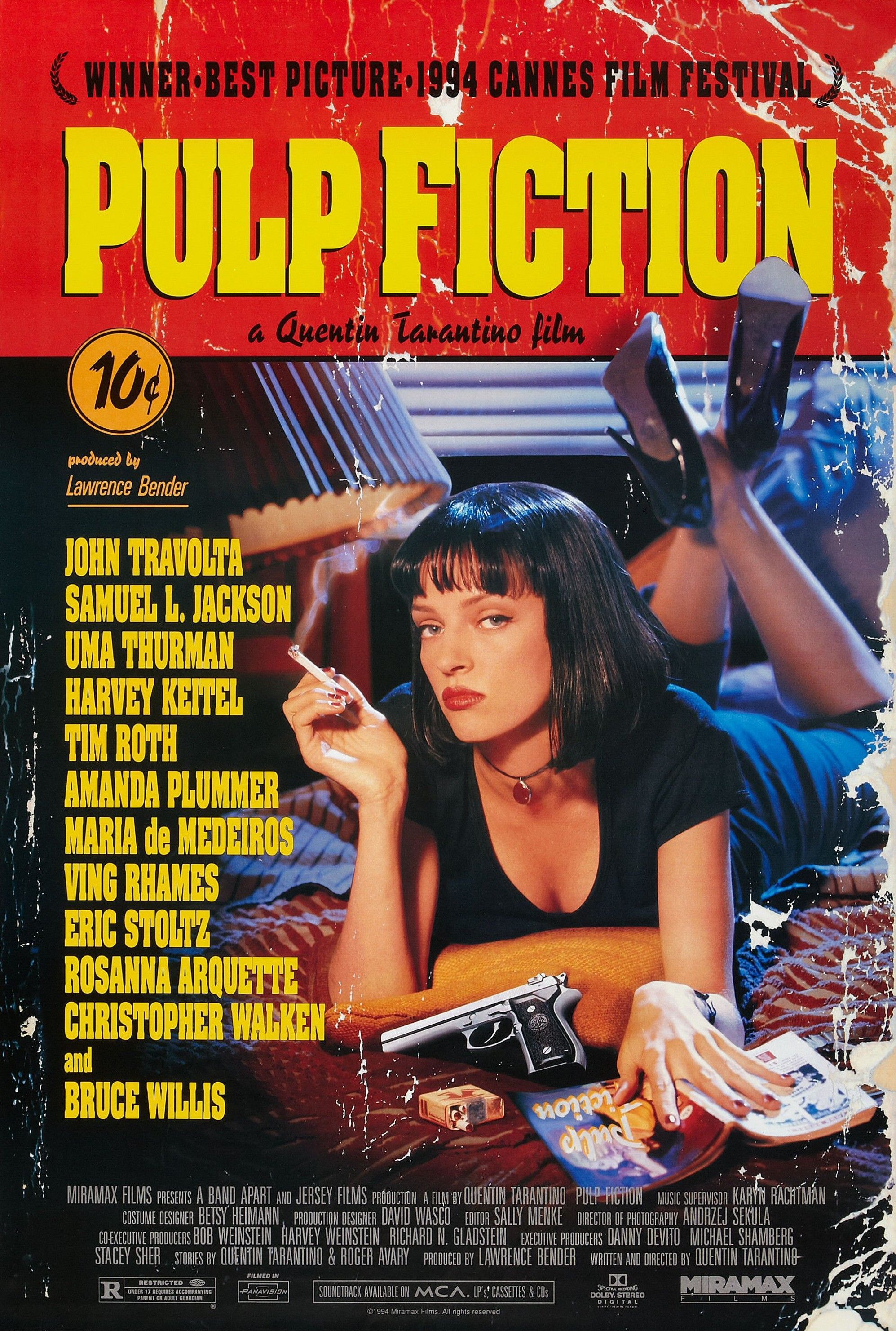
10
Jules Lets the Robbers Go
It marks the beginning of a nonviolent, generous future for Jules
Jules (Samuel L. Jackson) and Vincent (John Travolta) get the better of the two diner-robbers (Tim Roth and Amanda Plummer) at the end of the movie, but that doesn’t end the way we might have thought. Despite the fact that they shot several people that morning, they decide to let this couple go. Or at least Jules does; he’s the one calling the shots here. After giving a stirring speech, Jules allows the robbers to not just keep their lives; he lets them keep those wallets, too.
One can certainly make the argument that letting the pair keep all those wallets will enable them to keep stealing in the future. However, this is certainly a step in the right direction for Jules as a person. What this is, essentially, is an act of grace by a man who wants to live a more spiritual life—and it works as a fitting end to the story. This hitman leaves the killing business in style, helping make Pulp Fiction rank among the best gangster movies ever.
9
Butch Kills His Boxing Opponent
The man keeps some pride, it launches his plot, and it foreshadows his near future.
Butch was paid by Marsellus to lose his match, something that boxing is infamous for. Butch’s career is just about over, and he’s got to take the money where he can. The night of the fight, however, he not only wins his fight; he kills the other guy. He’s also paid a taxi to clandestinely meet him outside and drive him away to safety before Marsellus’s henchmen can get to him.
This is set up very well. First of all, Vince calling him “punchy” and “palooka” earlier at the boss man’s place really lit a fire under him. He couldn’t say anything about it at the time, of course, but he sure did in the ring. That flashback about his father’s watch also must have given him a spark of pride, and then there’s the matter of betting on himself to win the match and making a ton more money than he was given. But Butch just meant to win; he didn’t mean to kill him. This marks an interesting slide into darker events, foreshadowing not-so-accidental fatalities the following day.
8
Jules Decides To Quit the Business
His character arc takes a surprising and philosophical turn.
After their near-death experiences and the Bonny incident, Jules and Vincent naturally decide to get some breakfast at a diner. Vincent is ready to move on from the events of the morning, but not his partner. His former partner, that is; Jules said so before in the car, and he’s sticking to the plan now: he’s quitting the gangster life. Claiming that he and Vincent should have been dead when that guy came out of the bathroom and shot at them, Jules’ believes that God has given him a sign.
This is a very intriguing shift for his character, emphasized all the more by how much Vincent tries to contradict him. It adds nuance to the hitman archetype, and it does so in a way that feels true to the character and the story. Along with providing us with some of the most profound quotes in the movie regarding how we make sense of the world around us, this plot twist helps the audience sympathize with a guy whose profession should have made that impossible.
7
Butch and Marsellus Get Abducted
It conveys the dark places where revenge can lead.
After Butch (Bruce Willis) runs over Marsellus (Ving Rhames) in the middle of the street, it turns into a stumbling gun fight. That, in turn, becomes half gun-fight and half fist-fight. Butch gets the upperhand over Marsellus in a thrift store, and he’s about to blow his head off when the owner of the store (Duane Whitaker) points a gun at him and tells him to drop the weapon. After the stranger knocks Butch out, he and Marsellus find themselves tied up in a basement.
The viewer might have thought this conflict would simply end in the streets, but the story takes a much darker turn. These men plan to rape Butch and Marsellus, and this is where the horrifying Gimp character shows up. This isn’t just shock and controversy for shock and controversy’s sake, though; it can also be taken as a realm of moral depravity that people can wind up in when they’re hell-bent on vengeance and murder.
6
Vincent Shoots Marvin
It’s shocking, and its meaning is interestingly ambiguous.
Vincent and Jules somehow didn’t get shot just a few minutes ago, and they’ve brought along one of the men from the apartment in their car. His name is Marvin (Phil LaMarr), and he was already freaking out after those other guys got shot. That’s not even the worst part of his day, unfortunately; Vincent and Jules are arguing about divine intervention when Vincent turns around and asks for Marvin’s opinion while absentmindedly pointing his gun at the guy. Out of nowhere, it goes off.
No more Marvin, and now Jules and Vincent are driving down a sunny street with perhaps the bloodiest interior of all time. The spontaneity in this movie makes it one of the best crime movies in cinema history, and this is one of its most shocking moments. What makes this more interesting, however, is what Vincent is saying when it happens: “I mean, do you think that God came down from heaven and stopped—” and blam. Make of that what you will, but the timing definitely makes you wonder what Tarantino is getting at here.
5
Butch Shoots Vincent
It’s funny, surprising, and fittingly non-dramatic.
Butch is risking his life to get his father’s watch. It went through war after war to make it onto Butch’s wrist, and he’ll go exactly where the bad guys expect him to go if that means he’s going to have a chance at retrieving it. This should end very poorly for him, but Pulp Fiction doesn’t have things resolve so simply. Butch finds no one there, amusingly pops something in the toaster, and then notices a huge gun on his kitchen counter.
Butch picks it up, hears his toilet flush, and Vincent exits the bathroom. After an awkward moment of silence, Butch shoots him. It’s a hell of an undignified way to go, but that’s Pulp Fiction for you. This is one of those plot twists that’s presented in a way that begins with certain expectations, undercuts them with humor, brings you a twist in a hilarious way, and ends with a great (if not-so-sympathetic) character’s death. That’s hard to do, but Tarantino makes it look easy.
4
Butch Saves Marsellus
The choice of weapons is fantastic, and it somewhat redeems Butch.
Marsellus tried to have Butch killed, and their struggle led to them getting tied up in a basement with some demented people with sadistic intentions. As a boxer, Butch was able to get himself out of his ropes, knock out the Gimp, and make his escape. Just when he’s about to walk out the door, though, he hesitates. Marsellus is still down there, and, despite their history, it just wouldn’t be right to abandon someone to that fate.
It’s difficult and almost always unwise to try finding humor in a scene with circumstances like this. But, given Butch’s decision to help his former colleague, we can now intuit that Marsellus will be saved; it’s just a matter of how. It’s hilarious to watch Butch finding increasingly helpful weapons, and it’s quite gratifying to watch him use that samurai sword on the rapists below. Butch has killed a few people by now, but his decision to help a man in need helps redeem his character. Furthermore, Marsellus and Butch settling their differences helps make this a Bruce Willis movie you need to watch.
3
Butch Runs Into Marsellus
It’s hilarious, and it propels his story into darker territory.
One of the most harrowing parts of the movie is preceded by one of its funniest moments. Butch just found his father’s kangaroo watch, and he’s driving back to the motel. He’s listening to “Flowers on the Wall” by The Statler Brothers, and he’s even singing along with it. He stops at the light and is just jamming out when, all of a sudden, someone walks by on the crosswalk. This man seems to be carrying a box of pastries and some coffee on top, and, upon a closer look, we see this man is Marsellus Wallace.
The way Marsellus and Butch’s paths cross in such a mundane way is hysterical, but there’s also the way Marsellus stops and turns. Ving Rhames’ delivery of “Motherf****” is absolutely terrific, and of course Butch’s instinct is to just run him over and drive into oncoming traffic. What are the odds of these two running into each other? Who cares, because it’s a legendary plot twist of humor and action.
2
That Other Guy in the Bathroom
Excellent tension, as well as a significant turning point for Jules.
Telling this story in a non-linear way and from multiple perspectives allows Tarantino to end a scene and then resume it whenever he wants. That’s what he does with the diner sequence, which bookends the film, and that’s what he does with the Ezekiel 25:17 monologue. Overlapping what we’ve already heard from a new point of view, he starts “The Bonnie Situation” chapter by showing a guy hiding in the bathroom while Jules is invoking the Bible.
This does a few things. First of all, it builds some major suspense, since we didn’t know that the scene from earlier would be expanded upon. We don’t know if this guy is even going to leave the bathroom, let alone who will survive if he does. It also infuses humor during a speech that hadn’t been funny earlier; the look on the guy’s face as Jules recites that passage goes from terrified to confused. Lastly, it creates the inciting incident for Jules’ transformation. Overall, this plot twist goes a long way to help make this one of Quentin Tarantino‘s true masterpieces.
1
Mia Overdoses
Nothing better embodies the movie’s unpredictability.
Mia had a great time with Vincent, not least because of the cocaine she took in a restaurant bathroom. Now they’re back at her place, and Vincent immediately needs to give himself a very long pep talk in her bathroom to ensure he doesn’t sleep with his boss’s wife. While she’s waiting for him, Mia finds some drugs in his pocket. Assuming it’s more coke, she snorts some of it. But it’s heroin, and now both the stakes and the mood of this chapter have suddenly changed.
The possibility of a romantic evening immediately goes out the window, as Vince now has to frantically get her some medical attention without going to a hospital. Tarantino does a great job throughout the film of letting moments linger and making us wonder what direction a scene is going in, and Mia dancing to “Girl, You’ll Be a Woman Soon” is perhaps the greatest example. Interspersing that with Vincent amusingly talking to himself, this turn of events masterfully mixes humor with tension and surprise. More than any other moment in Pulp Fiction, the execution of this plot twist keeps us fixated on the screen.
